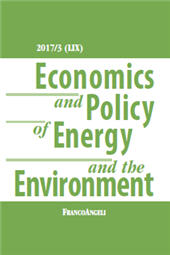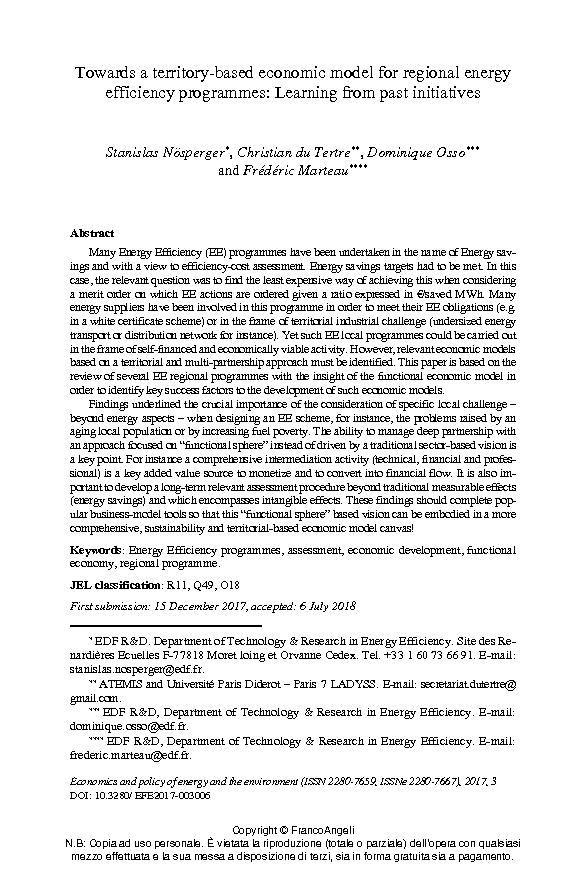Towards a territory-based economic model for regional energy efficiency programmes : learning from past initiatives
95-115 p.
Many Energy Efficiency (EE) programmes have been undertaken in the name of Energy savings and with a view to efficiency-cost assessment. Energy savings targets had to be met. In this case, the relevant question was to find the least expensive way of achieving this when considering a merit order on which EE actions are ordered given a ratio expressed in €/saved MWh. Many energy suppliers have been involved in this programme in order to meet their EE obligations (e.g. in a white certificate scheme) or in the frame of territorial industrial challenge (undersized energy transport or distribution network for instance). Yet such EE local programmes could be carried out in the frame of self-financed and economically viable activity.
However, relevant economic models based on a territorial and multi-partnership approach must be identified. This paper is based on the review of several EE regional programmes with the insight of the functional economic model in order to identify key success factors to the development of such economic models.
Findings underlined the crucial importance of the consideration of specific local challenge - beyond energy aspects - when designing an EE scheme, for instance, the problems raised by an aging local population or by increasing fuel poverty. The ability to manage deep partnership with an approach focused on "functional sphere" instead of driven by a traditional sector-based vision is a key point. For instance a comprehensive intermediation activity (technical, financial and professional) is a key added value source to monetize and to convert into financial flow. It is also important to develop a long-term relevant assessment procedure beyond traditional measurable effects (energy savings) and which encompasses intangible effects. These findings should complete popular business-model tools so that this "functional sphere" based vision can be embodied in a more comprehensive, sustainability and territorial-based economic model canvas! [Publishers' text].
-
Artikel aus derselben Ausgabe (einzeln erhältlich)
-
Informationen
ISSN: 2280-7667
KEYWORDS
- Energy Efficiency programmes, assessment, economic development, functional economy, regional programme



